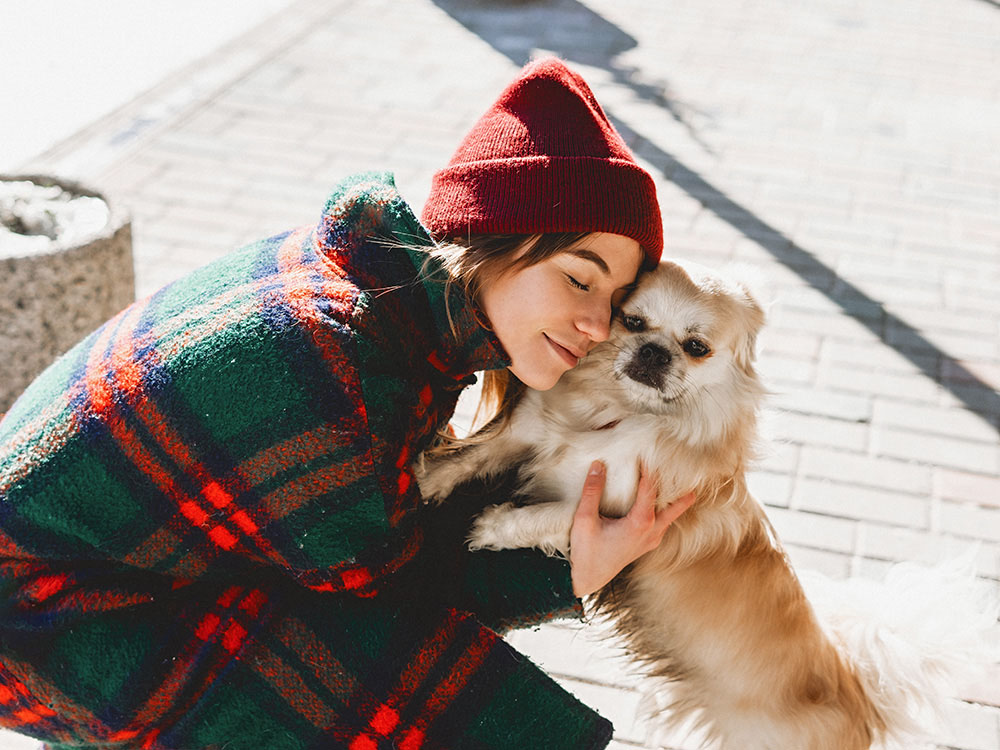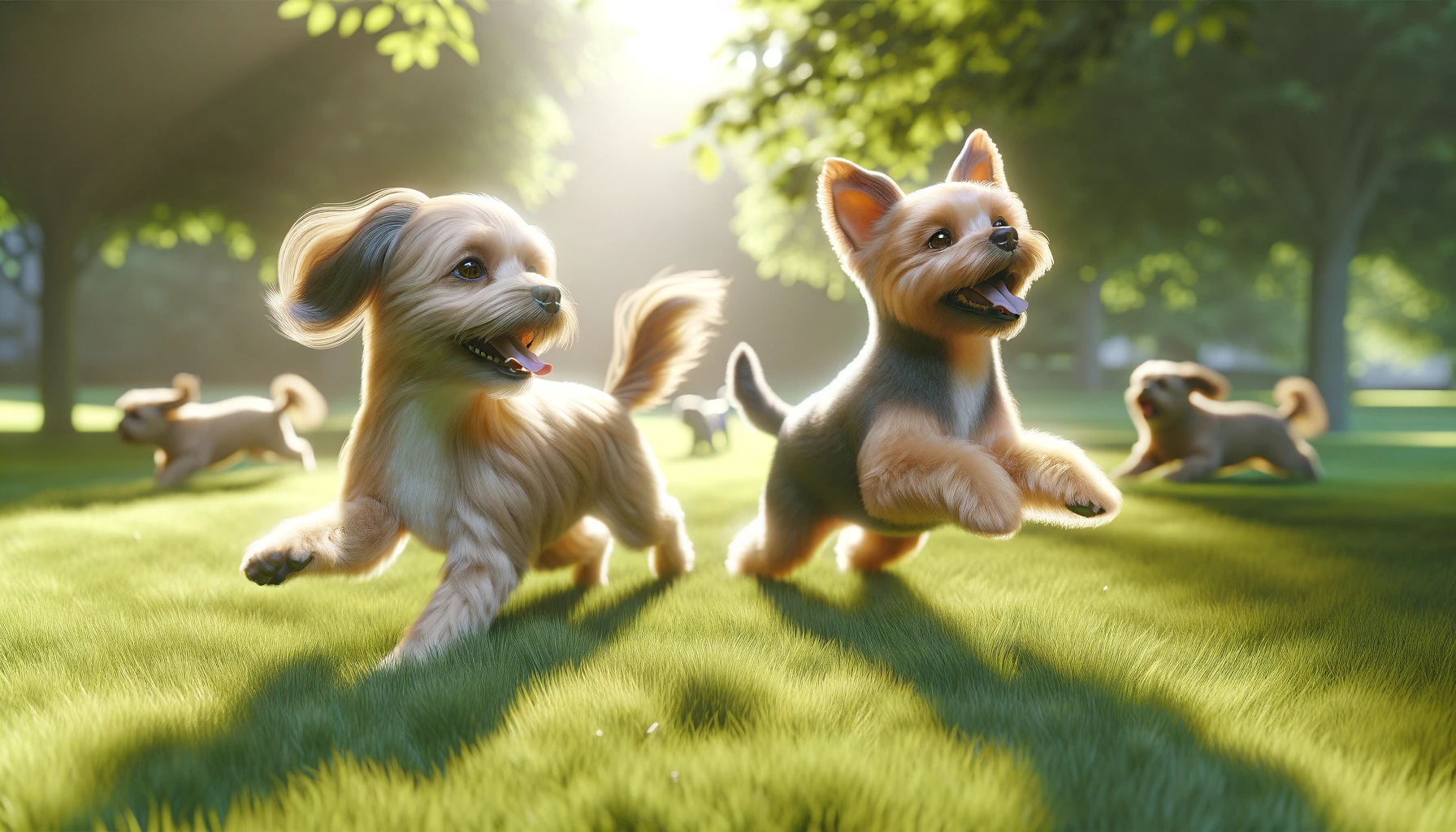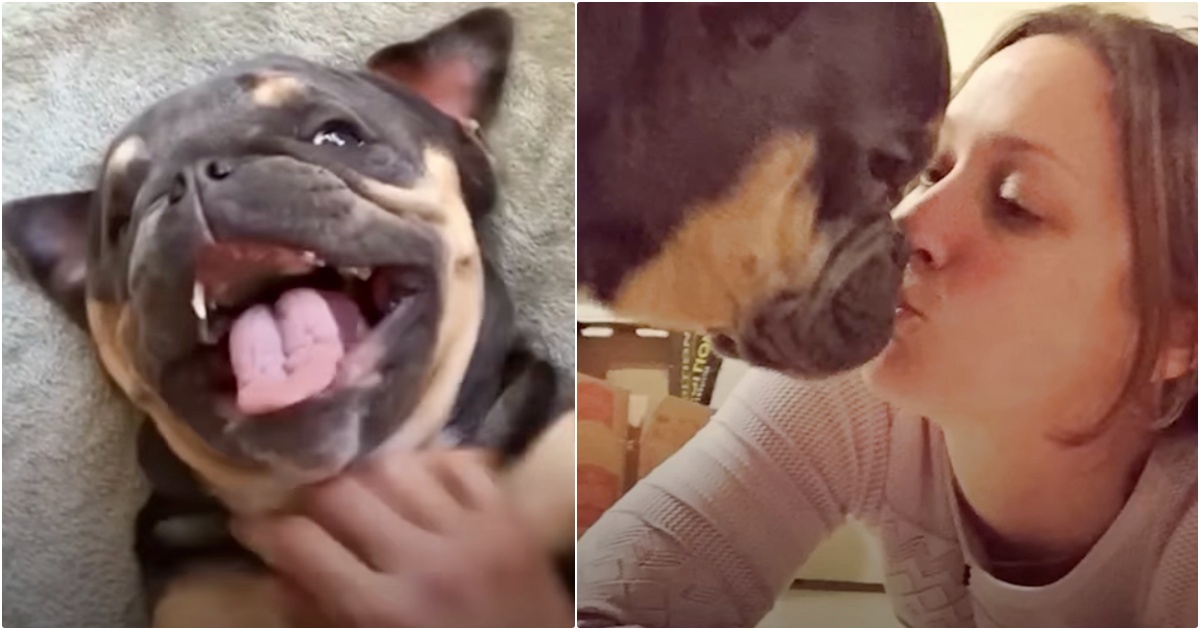Kseniia / AdobeStock
If you’re considering adopting a new dog, energy level is probably one of the biggest factors to think about. Dogs generally have a reputation for being excitable and energetic, but there are plenty who would rather relax and watch TV with you than demand endless hours of catch. Many breeds were bred to perform jobs that require less energy, including guarding, keeping others company, quietly retrieving game or just being friendly, which has resulted in calm temperaments.
Despite being relatively relaxed and peaceful, calm dogs still require regular exercise to maintain their physical and mental health. While they may not be prone to hyperactivity, they still need the opportunity to stretch their legs, burn off some energy, and get some fresh air. Not every pup will be a match for your lifestyle and activity level, so consider how much time you can throw at training and play sessions.
While these laid-back dogs will be eager to join you in a binge-watching session, space matters, and only some dogs are suitable for apartment life. Same goes for size. Are you considering adopting a small dog, medium-sized dog, or big dog? There are less energetic dogs in each size, especially if you consider adopting a senior rescue dog, who would simply be happy to be in a home where they’re loved. A good resource is your local shelter or rescue group; their volunteers can act as matchmakers who can help find you the right pup for your family. If you’re looking for a calm companion, here are 10 breeds to consider.
10 Super Chill Dogs

Gillian Vann / Stocksy
1. Senior Rescue Dog
Senior rescue dogs are generally seven years or older, and there are a lot of them in shelters. Rescue dogs, some of whom previously lived with but were surrendered by families, come in all breeds, sizes, and temperaments. Senior dogs, however, are usually quieter and slower-paced than their younger counterparts and are just looking for a safe place to spend their golden years. They also often require less training than younger dogs and are typically already house-trained. The downside of senior dogs is they are more likely to have certain health issues, like arthritis or dental problems, but they make up for it with gratitude for a second chance at a happy life.

Ksenia Izmaylova / Shutterstock
2. Clumber Spaniel
While the Clumber Spaniel was originally bred for hunting birds, the breed is generally known to be more calm and laid-back than some other spaniels. They also have big lumpy heads on surprisingly short legs, making them awkwardly adorable. They are very affectionate and are fine being indoors and hanging out. The Clumber has a thick cream coat that is usually spotted with orange and needs a lot of brushing. They need regular exercise and a balanced diet to prevent weight gain and can also be prone to health issues such as hip dysplasia and eye problems. Make sure you get them from a reputable breeder and stay on top of vet care.
Search Clumber Spaniels Available for Adoption

Danita Delimont / Alamy Stock Photo
3. Irish Wolfhound
The Irish Wolfhound may have been bred to hunt wolves and were even brought to battlefields, but they are often described as “gentle giants” because they are very friendly with people, other animals, and kids. This big breed is one of the tallest, with males standing up to 32 inches tall at the shoulder and weighing up to 120 pounds, but despite their large frames, Irish Wolfhounds are super chill and laid-back; they require regular exercise but are not particularly energetic. Take them for a walk, impress everyone around you, then take them home for a long nap.
Search Irish Wolfhounds Available for Adoption

everydoghasastory / Shutterstock
4. Pekingese
The Pekingese was originally bred to serve as companion dogs in the Chinese Imperial Court, and they love company. This small breed has a flat face, a long, luxurious coat, and particularly floppy ears. These pups make great pets for those seeking a low-energy dog that can adapt well to living in small spaces, though their love of people means separation anxiety is an issue if they’re left alone for too long. They are subject to some hereditary health issues, which can make them expensive pets to keep, but, as a bonus, their long coats mop the floor for free.
Search for Pekingeses Available for Adoption

Giada Canu / Stocksy
5. Greyhounds
The Greyhound may be known for hunting and racing, but this breed is secretly one of the laziest dog breeds; though they obviously have the capacity for bursts of energy, Greyhounds love lounging and sleeping whenever they can. Many Greyhounds end up in rescues after their racing days are over and make great family pets, but bad guard dogs, as they are likelier to fall back asleep than confront an intruder. Moderate walks and runs are important for their health, but they will love hanging on the couch with you more than anything. These big dogs also don’t love stairs, so beware if you live in a home with stairs or a building without an elevator.
Search Greyhounds Available for Adoption

VeronArt16 / Shutterstock
6. Leonberger
The Leonberger is a muscular German breed often used as draft dogs and herding dogs. They have a calm nature, though, and are very trainable, which not only makes them great family pets but also often leads to them being used as therapy dogs. They are also often trained as search and rescue dogs because they are brave. Leonbergers have a thick coat that grows around their body in a big ruff and require regular exercise and training to prevent destructive behavior, so make sure you have some space inside and time for the outdoors.
Search Leonbergers Available for Adoption

Melanie DeFazio / Socksy
7. Keeshond
The Keeshond is a calm medium-sized breed from the Netherlands with a silver-gray coat and distinctive black markings around their eyes; they look a little like a large raccoon you can safely keep in your home. They were originally bred as watchdogs and companions, so they love barking and being near you in that order. Keeshonds have moderate energy levels, naturally gentle personalities, and are easily trainable. Lots of regular exercise and socialization will keep them in good spirits.
Search Keeshonds Available for Adoption

YorVen / Shutterstock
8. Japanese Chin
The Japanese Chin is a small toy breed that, despite their name, is originally from China and landed in Japan in the 16th century. This breed has a round head, large, wide-set eyes, and a short, flat nose with a soft and silky coat ending in a beautiful tail. They have an affectionate, gentle nature and love attention. These peaceful pups make good lap-dogs and are sometimes compared to cats because they self-groom and climb high. They’re also super smart, but unlike most cats, they are very trainable.
Search Japanese Chins Available for Adoption

Wirestock / iStock
9. Xoloitzcuintli
The Xoloitzcuintli is a small hairless dog topped with a little tuft of hair (though sometimes they even forgo that little decoration) and known for being a relaxed, quiet companion. The Xolo usually attaches to one family member in particular, but they get friendly with anyone they’re comfortable with. Despite being fairly chill, Xolos like regular long walks and outdoor time. Because they’re hairless, these dogs don’t need as many baths as most, and too much bathing can take off their natural skin oils, which causes various issues; one bath per month, paired with a warm cloth rub-down once in a while, is good.
Search Mexican Hairless Dogs Available for Adoption
10. Tibetan Spaniel
Tibetan Spaniels are tiny dogs from Tibet bred to be little guardians. These pups can have calm and affectionate personalities and don’t require a lot of exercise. They are loyal and will quickly become attached to their family, but are usually pretty open to new people. They have silky coats in different shades of brown, big almond eyes, and floppy ears that point forward to frame their cute faces. They’re trainable, though they have a bit of a reputation for stubbornness (as little dogs often do).
Search for Tibetan Spaniels Available for Adoption
Do calm dogs still need exercise?
Yup, calm dogs still need plenty of exercise even though they can be content to spend time quietly with their pet parents or even by themselves. This can include walks, runs, playtime in the yard, swimming, hiking, or whatever else you can get yourself to do outside the house.




